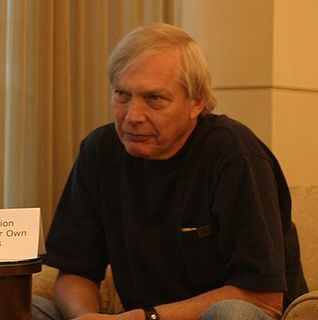A Quote by Jonathon Keats
[Buckminster] Fuller said that everything at the time was basically a horse and buggy in the form of an automobile and it had that boxiness and basically aeronautics hadn't been invented.
Related Quotes
Just enough of that to be able to give the reader a sense of skepticism that all - it seemed like all that was necessary. I don't really care. But what I do care about is what was happening within the realm of automobiles at the time that [Buckminster Fuller] invented his Dymaxion car because that is really relevant.
By the time I was doing "Kill Bill," it was so much filled with prose that, you know, I start seeing why people write a screenplay and make it more like a blueprint, because basically I had written - in "Kill Bill," I had basically written a novel, and basically every day I was adapting my novel to the screen on the fly, you know, on my feet.
A whole lot of us go through life assuming that we are basically right, basically all the time, about basically everything: about our political and intellectual convictions, our religious and moral beliefs, our assessments of other people, our memories, our grasp of facts. As absurd as it sounds when we stop to think about it, our steady state seems to be one of unconsciously assuming that we are very close to omniscient.
Top Trumps appeared to be a game in which you got cards, and the cards had a picture (in this case, of a horse), and told you all kinds of stats for that horse, how fast it was, how big it was, etc. Whoever had the better horse won both the cards. You repeated this until someone had all the cards. So, basically it was exactly like high school, except it only took three minutes. Which was really a bit more humane, if you thought about it.
Technological revolutions are very hard to predict. My favourite example is someone in 1850 taking care of horses as a farrier. They would have said, "Look, horses have been part of human existence for 5,000 years. We are horse people. It's permanent." But all of a sudden, the internal combustion engine comes along and, with it, oil fields and automobiles, which basically replace the horse completely. So we often have these long periods of stability and then a sudden inflection point.
[Buckminster Fuller ] never got past his freshman year [in Harvard], because the guy was an insane womanizer and he did parties every night, never studied anything, never took a note, didn't care about anything and just had a blast. So they said, "We gotta let you go. You get zeros all the time." Today it wouldn't even matter, because they don't care if you can read.































